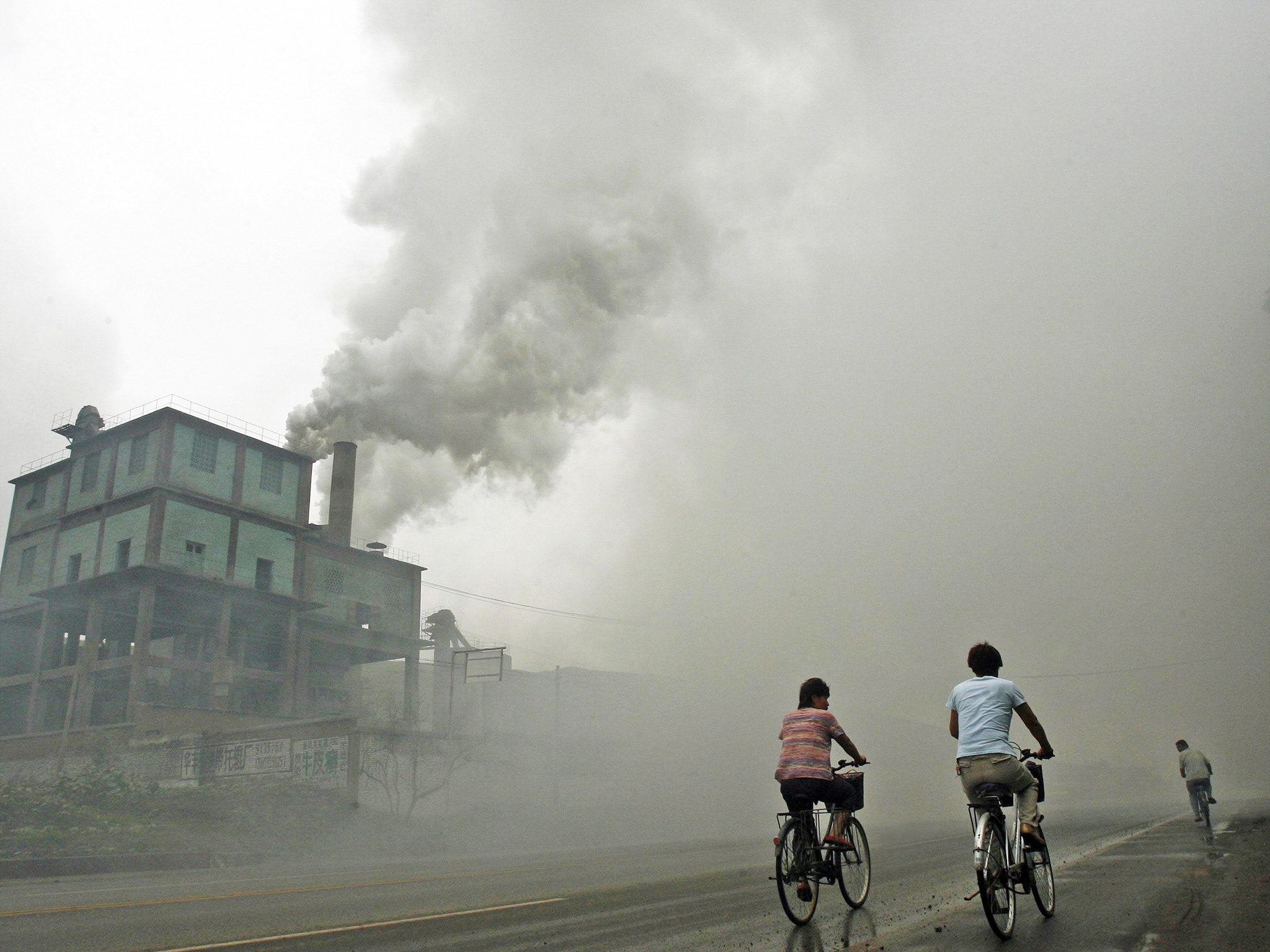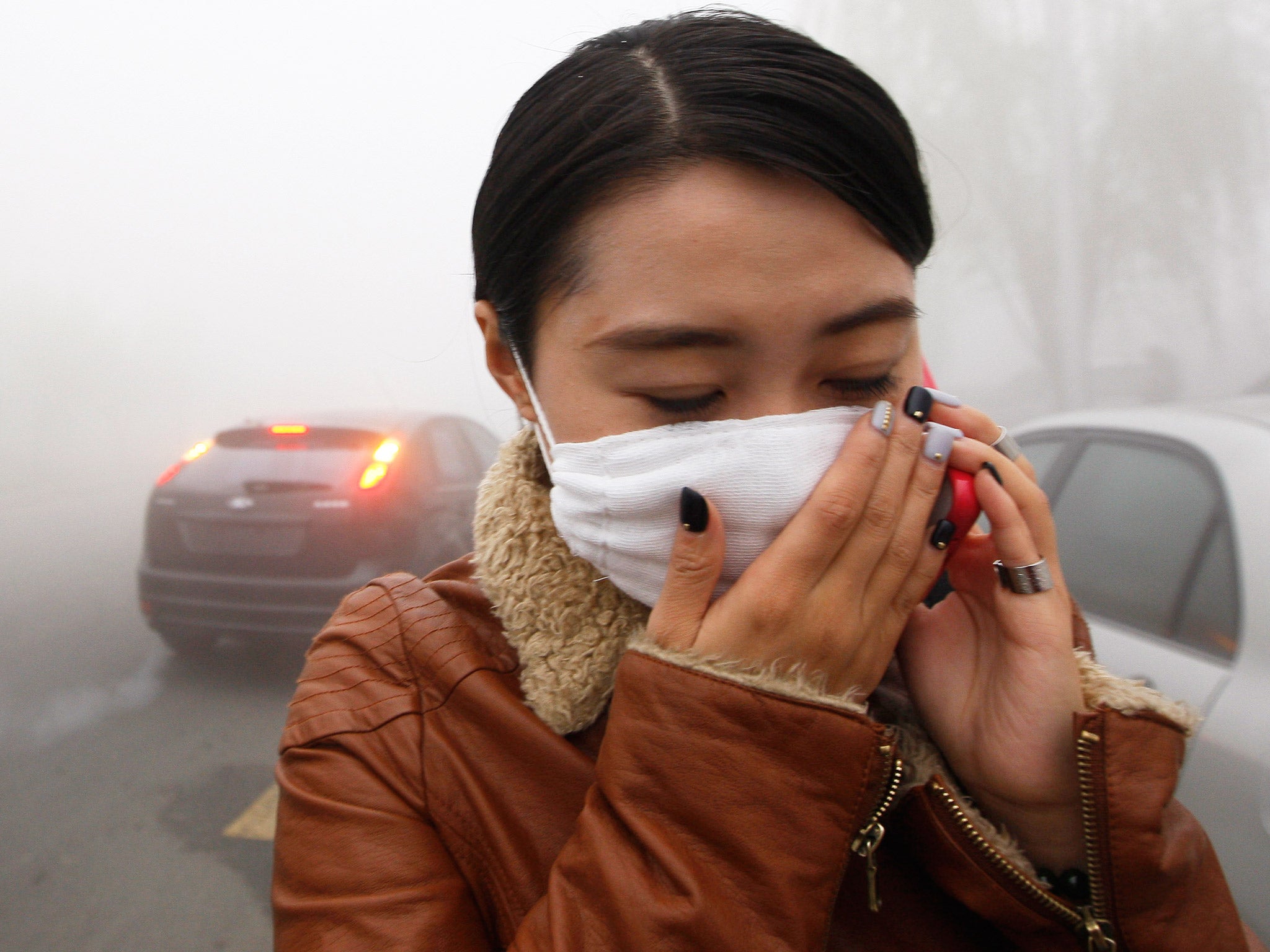China's carbon emissions overestimated by up to 14 per cent in the last decade, say scientists
'China is the largest coal consumer in the world, but it burns much lower quality coal, such as brown coal, which has a lower heat value'

Your support helps us to tell the story
From reproductive rights to climate change to Big Tech, The Independent is on the ground when the story is developing. Whether it's investigating the financials of Elon Musk's pro-Trump PAC or producing our latest documentary, 'The A Word', which shines a light on the American women fighting for reproductive rights, we know how important it is to parse out the facts from the messaging.
At such a critical moment in US history, we need reporters on the ground. Your donation allows us to keep sending journalists to speak to both sides of the story.
The Independent is trusted by Americans across the entire political spectrum. And unlike many other quality news outlets, we choose not to lock Americans out of our reporting and analysis with paywalls. We believe quality journalism should be available to everyone, paid for by those who can afford it.
Your support makes all the difference.The carbon dioxide emissions of China – the world’s biggest polluter – have been significantly over-estimated by as much as 14 per for the past decade, scientists have found.
A reappraisal of the type of “dirty” coal used in Chinese power stations and the amount of energy it has generated has revealed that previous calculations of the nation’s carbon dioxide emissions were considerably inflated, the researchers said.
Between 2000 and 2013, China’s cumulative emissions of CO2 were 2.9 gigatonnes less than previously estimated, they found. This shortfall is less than the natural “sink” for carbon stored in the country’s forests, they said.
“Our results suggest that Chinese CO2 emissions have been substantially over-estimated in recent years,” said Professor Dabo Guan of the University of East Anglia in Norwich, one of the members of the international research team.
“China is the largest coal consumer in the world, but it burns much lower quality coal, such as brown coal, which has a lower heat value and carbon content compared to the coal burned in the US and Europe,” Professor Guan said.
Nearly three quarters of the growth in global carbon emissions from the burning of fossil fuels and cement production between 2010 and 2012 occurred in China, yet there are large uncertainties in the data due to the difficulties of estimating energy consumption and carbon dioxide emissions, the researchers said.

The study, published in the journal Nature, found that the total energy consumption in China was 10 per cent higher between 2000 and 2012 than reported in the country’s national statistics. However, when coal quality was taken into account, there was an average 40 per cent fall in overall emissions from power generation and 45 per cent fall in emissions from cement making.
Professor Corinne Le Quere, director of the Tyndall Centre for Climate Change Research at UEA, said that there were still a lot of uncertainties in the data, especially given the discrepancies between national and provincial figures.
“There is still a lot of work to do. The strong message here is that as we refine our estimates of carbon emissions we get closer to an accurate picture of what is going on and we can improve our climate projections and better inform policy on climate change,” Professor Le Quere said.
Professor Dave Reay of Edinburgh University said that the revision of China’s carbon emissions make no difference to the overall climate picture.
“China's emissions may be a bit less than we thought, but we know how much total CO2 there is in the atmosphere and it is monitored globally. This study therefore makes no difference to the total amount in the atmosphere; it simply means that accounting for Chinese emissions is getting better,” Professor Reay said.
Join our commenting forum
Join thought-provoking conversations, follow other Independent readers and see their replies
Comments